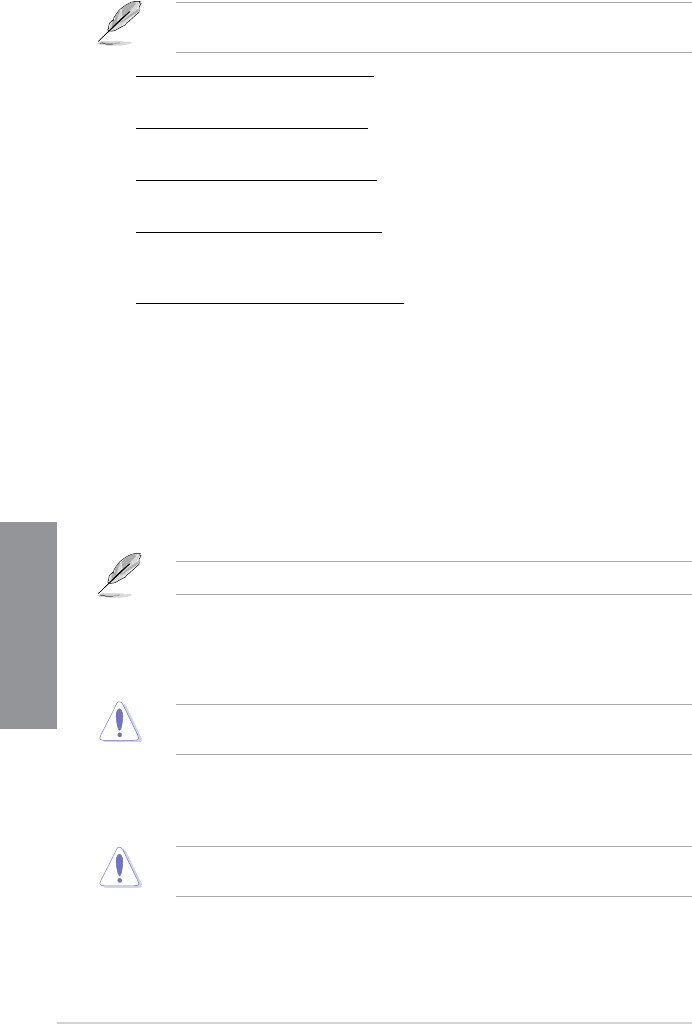
3-10
Chapter 3: BIOS setup
Chapter 3
The following three items appear only when you set both the EIST and Turbo Mode items
to [Enabled].
Long Duration Power Limit [Auto]
Use the <+> and <-> keys to adjust the value.
Long Duration Maintained [Auto]
Use the <+> and <-> keys to adjust the value.
Short Duration Power Limit [Auto]
Use the <+> and <-> keys to adjust the value.
Primary Plane Current Limit [Auto]
Maximum instantaneous current allowed at any given time for CPU cores
Use <+> and <-> key to adjust the value at 0.125A increment. .
Secondary Plane Current Limit [Auto]
Maximum instantaneous current allowed at any given time for Internal Graphics cores.
Use <+> and <-> key to adjust the value at 0.125A increment.
DIGI+ VRM
CPU Load-Line Calibration [Auto]
Load-line is dened by Intel VRM spec and affects CPU voltage. The CPU working voltage
will decrease proportionally to CPU loading. Higher value gets a higher voltage and better
overclocking performance, but increases the CPU and VRM thermal. This item allows you to
adjust the voltage range from the following percentages to boost the system performance:
0% (Regular), 25% (Medium), 50% (High), 75% (Ultra High) and 100% (Extreme).
Conguration options: [Auto] [Regular] [Medium] [High] [Ultra High] [Extreme]
The actual performance boost may vary depending on your CPU specication.
CPU Fixed Frequency [xxx]
Frequency switching affects the VRM transient response and the thermal component. Higher
frequency gets quicker transient response. Use the <+> and <-> keys to adjust the value. The
values range from 200k Hz to 350k Hz with a 50k Hz interval.
DO NOT remove the thermal module when switching to Manual Mode. The thermal
conditions should be monitored.
CPU Power Phase Control [Standard]
Allows you to control the power phase based on the CPU’s demands.
Conguration options: [Standard] [Optimized] [Extreme] [Manual Adjustment]
DO NOT remove the thermal module when switching to Extreme and Manual Mode. The
thermal conditions should be monitored.


















